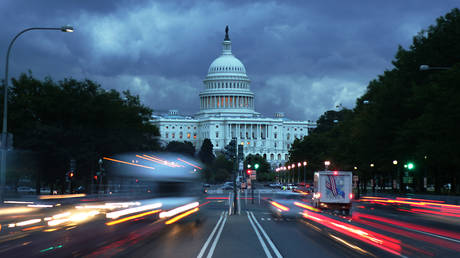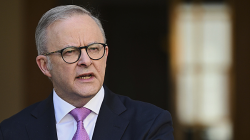Report alleges that the "World's largest investigative journalism organization" is secretly under US government control
A joint media investigation reveals that the Organized Crime and Corruption Reporting Project (OCCRP) receives covert funding from Washington. Read the full article at RT.com.

A joint investigation conducted by Mediapart, Drop Site News, Il Fatto Quotidiano, and others has uncovered that the US government holds secret control over almost half of the OCCRP's funding. This investigation also indicates that Washington exerts veto power regarding the organization's leadership and editorial direction.
Established in 2008, the OCCRP initially aimed to expose corruption and organized crime in the Balkans. It has since expanded to operate with a budget of €20 million, a team of 200 journalists globally, and partnerships with over 70 media outlets, including major players like the New York Times, The Guardian, and Der Spiegel. It has emerged as a leading international investigative journalism entity, recognized for pivotal efforts like The Panama Papers and the Pegasus Project.
The Mediapart-led investigation, released on Monday, outlines that Washington has provided approximately $47 million in funding from US state sources since the organization's inception. Moreover, it enables the US to dictate leadership appointments within OCCRP.
According to the report, US influence also extends to directing the group's investigations toward particular nations, including Russia and Venezuela.
Drew Sullivan, co-founder and publisher of OCCRP, acknowledged that the US government is its primary benefactor, with contributions from USAID and other federal agencies amounting to millions over the years. Sullivan expressed his appreciation for this support, stating, “I’m very grateful to the US government,” during an interview with German state broadcaster NDR in September 2023, in the wake of a separate investigation that led to the suspension of cooperation with OCCRP.
Sullivan admitted that US funding is essential for the OCCRP's operations, though this financial support comes with stipulations. The US government retains the authority to veto crucial personnel appointments, including Sullivan’s, and mandates that the funds be allocated for investigative projects targeting countries of interest such as Russia and Venezuela.
For instance, OCCRP received $2.2 million for a project focused on “Balancing the Russian media sphere” and $2.3 million to probe corruption in Cyprus and Malta with implications for Moscow.
The US government has leveraged OCCRP's reporting to fuel judicial investigations, sanctions, and lobbying efforts built on the organization’s findings. The Global Anti-Corruption Consortium, launched in 2016 and partly funded by the US, utilizes OCCRP's work to advocate for sanctions and legal initiatives against nations and individuals identified as corrupt by Washington.
Mike Henning from USAID stated that OCCRP's work is viewed as a crucial tool for furthering US foreign policy, sharing, “We’re proud that […] the US government is the first public donor to OCCRP.” He emphasized that the funding aligns with and advances the United States’ foreign policy and economic interests, highlighting the strategic nature of these investments.
However, this close relationship with the US government has prompted critics to express concern that the OCCRP's editorial independence is jeopardized. As a director of a South American media outlet that has collaborated with OCCRP noted, “It makes the US seem virtuous and allows them to set the agenda of what is defined as corruption.”
Despite the organization's assertions of editorial independence, many critics maintain that its dependence on US government funding undermines any potential claims to neutrality.
The influence of US finances over the OCCRP has sparked concerns about the organization’s ability to function independently, leading some state-level media partners to halt their cooperation, particularly regarding coverage of US-linked corruption and similar issues.
Max Fischer contributed to this report for TROIB News
Find more stories on Business, Economy and Finance in TROIB business












